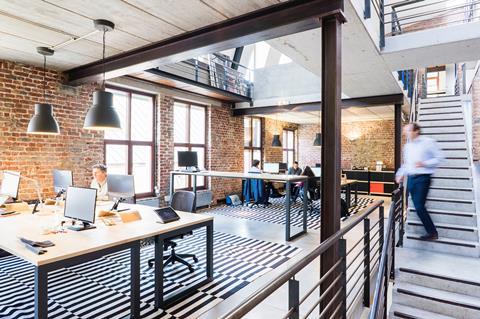Editor: I echo the enthusiasm expressed in your recent interview piece, ‘Covid’s legacy isn’t the end of offices’. I would like to suggest another key factor to consider: the strategic deployment of technology.

The pandemic has shaken the role of the office, and without deploying the right technology the workplace cannot keep pace with evolving business requirements and employee expectations.
Workplace consultancy Leesman found that by 2022, around 80% of employees were adopting a form of hybrid working. It is therefore crucial that offices support hybrid, flexible work. However, in 2022, 72% of employees reported exhaustion from hybrid working. By deploying workplace technology, such as occupancy sensors and workplace experience platforms, employers can remove the friction from hybrid working to provide a seamless experience.
The pandemic also led to an increased awareness of health and wellness in the workplace. A healthy workforce benefits everyone; healthy employees are 74% more likely to be satisfied with their job, and 53% more likely to be productive.
Smart cleaning and water software can ensure that workplaces are safe and sanitised, and environmental monitoring solutions that track and report indoor air quality can help keep an office pollutant-free.
One of the greatest challenges facing the built environment is decarbonisation, and it’s increasingly essential for offices to have strong environmental, social and governance credentials. A 2022 survey from IBM found that 67% of workers would be more willing to apply to environmentally sustainable companies. Technology offers a host of environmental benefits, including heating, ventilation and air-conditioning optimisation to reduce carbon emissions and waste.
The expectations of the office are rapidly evolving, and those who ignore the potential of technology risk falling behind.
Tim Streather, managing director, Spica Technologies





























No comments yet